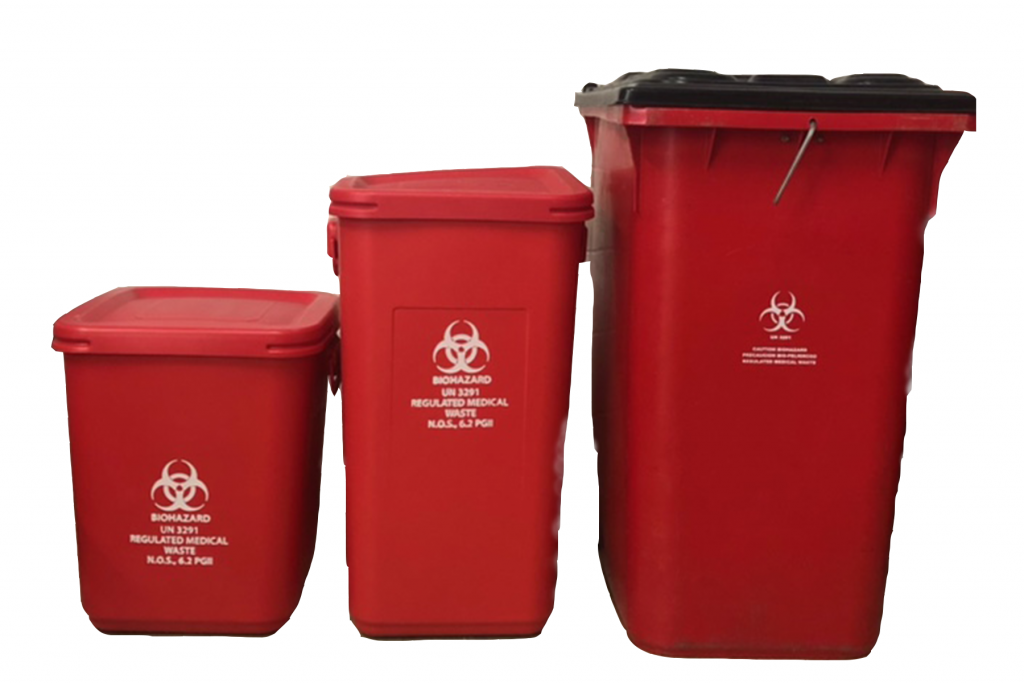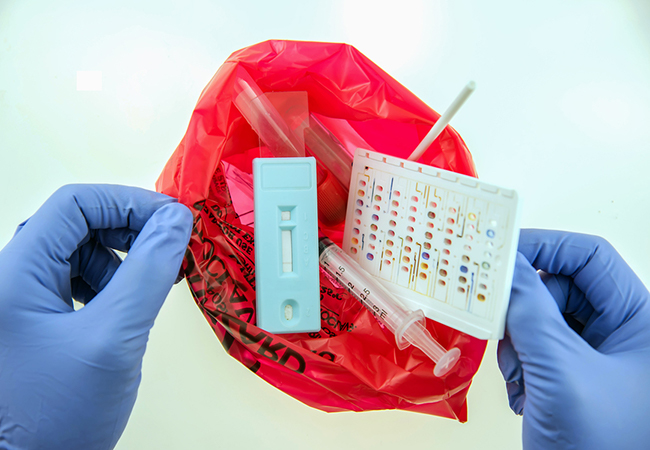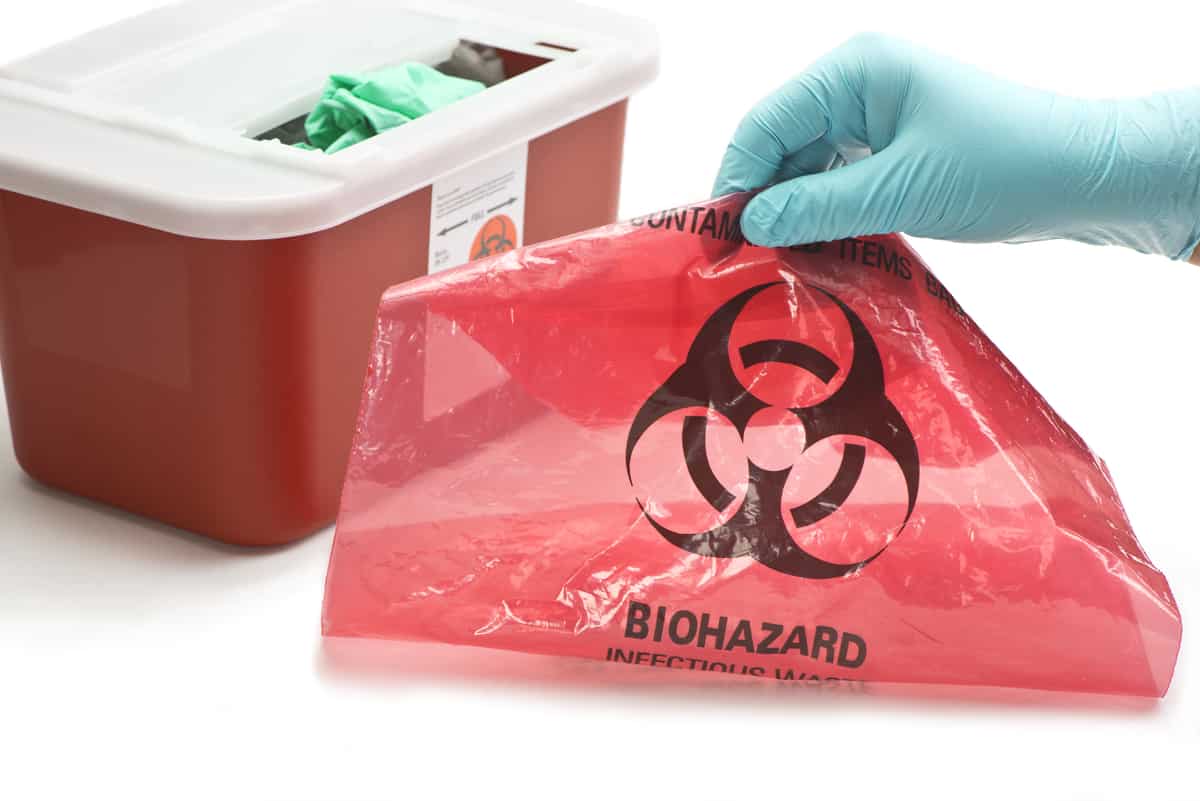Safety and security First: Your Overview to Accountable Medical Waste Removal Services
Safety and security First: Your Overview to Accountable Medical Waste Removal Services
Blog Article
Remain Ahead of Regulations: Expert Advice on Medical Garbage Disposal
In a globe where the healthcare sector is frequently advancing, it is imperative for clinical facilities to stay in advance of policies when it comes to the proper disposal of clinical waste. From understanding the various groups of medical waste to applying the ideal collection and segregation approaches, this discussion will certainly supply actionable pointers and useful insights to help centers stay in advance of policies in the ever-changing landscape of clinical waste disposal.
Comprehending Medical Waste Categories
Recognizing clinical waste categories is important for proper disposal and monitoring in health care facilities. Clinical waste refers to any kind of waste produced by medical care activities that might position a hazard to public health and wellness or the setting. It is important to classify medical waste properly to ensure its risk-free handling, treatment, disposal, and transport.
There are a number of groups of medical waste that health care centers require to be familiar with. One of the most usual classifications consist of contagious waste, pathological waste, sharps waste, pharmaceutical waste, and chemical waste. Each category has details guidelines and laws for its appropriate monitoring and disposal.
Infectious waste includes materials polluted with blood or various other physical liquids, such as gloves, gowns, and lab societies. Pathological waste describes human cells, body organs, or body parts that need special delivery and disposal. Sharps waste includes utilized needles, syringes, and various other sharp objects that can trigger injury and transmit infections. Pharmaceutical waste consists of ended, extra, or polluted medications that require mindful handling and disposal. Chemical waste consists of solvents, anti-bacterials, and various other chemical substances used in medical care centers.
Remaining Up-To-Date With Regulatory Changes
Staying current with regulative adjustments is vital for medical care centers to make certain compliance and proper management of medical waste disposal. medical waste removal services. With regulations constantly developing, it is necessary for medical care facilities to stay current to stay clear of penalties, fines, and potential damage to the atmosphere and public health and wellness
To stay in advance of regulative changes, health care facilities need to develop a system for monitoring and monitoring updates. This can be done by signing up for regulatory e-newsletters, going to workshops and seminars, and proactively taking part in industry organizations. Furthermore, facilities should mark a staff participant or team in charge of staying notified and disseminating info to relevant stakeholders.
Routine interaction with regulatory companies is also crucial. Healthcare facilities need to establish partnerships with local, state, and government firms to ensure they know any type of adjustments in guidelines that may influence their waste management techniques. This can be done through routine meetings, involvement in public remark periods, and positive involvement with regulatory companies.
Moreover, health care facilities must consider partnering with waste monitoring business that specialize in clinical waste disposal (medical waste disposal services with WasteX). These firms are typically fluent in the newest guidelines and can supply guidance and support to make sure conformity
Implementing Proper Collection and Segregation Techniques
To properly take care of medical waste disposal, healthcare centers need to develop correct collection and segregation methods based on regulatory guidelines. Carrying out these techniques makes certain the secure handling and disposal of possibly hazardous products, protects the environment, and minimizes the risk of injuries click to read more and infections to health care employees and the general public.
Appropriate collection and segregation techniques include using designated containers and classifying systems. Medical care centers ought to offer clearly labeled containers for various sorts of medical waste, such as sharps, infectious waste, pharmaceutical waste, and non-hazardous waste. These containers need to be color-coded and plainly significant to prevent confusion and advertise simple identification.
In addition, medical care facilities should educate their personnel on the appropriate procedures for accumulating and segregating medical waste. This consists of informing them on the different kinds of waste, the ideal containers to use, and the value of adhering to guidelines and standards. Normal training sessions and refresher courses must be carried out to guarantee that employee continue to be up-to-date on best practices.
Furthermore, health care facilities should develop a system for regular collection and disposal of medical waste. This might entail partnering with certified waste monitoring companies that focus on medical garbage disposal. These business will make certain that the gathered waste is transported and thrown away in conformity with governing requirements.
Choosing the Right Disposal Methods

Incineration is one of the most usual and reliable techniques for getting rid of specific kinds of medical waste, such as pathological waste and sharps. It includes the regulated burning of waste at heats, minimizing it to ash. Nonetheless, incineration can launch harmful pollutants right into the air and add to air contamination.

Chemical therapy entails the usage of chemicals to decontaminate and neutralize the waste. Microwave treatment uses microwave energy to heat and disinfect the waste.
Making Sure Conformity With Paperwork and Training
After very carefully taking into consideration the ideal disposal medical waste disposal services with WasteX approaches for clinical waste, medical care centers need to make certain conformity with laws and decrease ecological influence by applying reliable documents and training treatments. This action is crucial in maintaining a risk-free and sustainable atmosphere for both health care look at this website employees and the basic public.

Medical care employees that take care of medical waste ought to get proper training on waste partition, taking care of, and disposal procedures. By offering detailed training, medical care centers can encourage their team to make enlightened choices and lessen the danger of incorrect waste disposal.
Final Thought
In verdict, remaining in advance of regulations in medical waste disposal is crucial for healthcare facilities. medical waste removal near me. Understanding the different categories of clinical waste, staying upgraded with regulative adjustments, carrying out proper collection and segregation approaches, picking the suitable disposal approaches, and guaranteeing compliance with documents and training are all essential actions. By adhering to these standards, medical care organizations can efficiently get rid of and take care of of medical waste in a responsible and secure fashion
From understanding the different categories of clinical waste to carrying out the right collection and segregation methods, this conversation will certainly supply actionable suggestions and beneficial insights to aid facilities remain ahead of laws in the ever-changing landscape of medical waste disposal. - medical waste disposal services with WasteX
The most usual classifications consist of transmittable waste, pathological waste, sharps waste, pharmaceutical waste, and chemical waste. Medical care facilities need to offer plainly classified containers for various types of medical waste, such as sharps, infectious waste, pharmaceutical waste, and non-hazardous waste. Health care facilities ought to establish a thorough system to videotape and track all facets of clinical waste disposal, consisting of kinds of waste created, amounts, and disposal approaches utilized. Health care workers who deal with medical waste ought to receive suitable training on waste segregation, handling, and disposal procedures.
Report this page